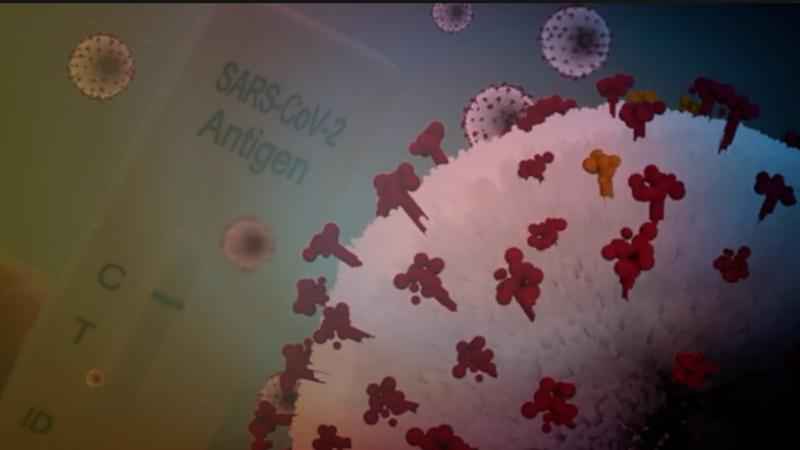Medical experts say some at-home COVID-19 tests may not be as effective in detecting omicron
[anvplayer video=”5080904″ station=”998122″]
Those at-home COVID-19 tests may have met their match: The omicron variant.
The Food and Drug Administration says early data shows those rapid tests can detect omicron, but that some are less effective than others.
“The virus may have mutations that could affect the performance of those antigen tests,” explains Dr. Matt Binnicker, the director of clinical virology at the Mayo Clinic. “We anticipate that most rapid tests should continue to identify patients with omicron. But there are many different types of rapid tests, and some may be a little less sensitive or not as good at picking up infections, especially early in the disease course."
Overall, antigen tests on the market tend to be roughly 85% effective in detecting COVID-19.
But Binnicker says omicron’s genetic makeup may be making it hard to detect.

[KSTP-TV]
"The majority of mutations in omicron and another gene called the spike gene, that most of the rapid tests don’t look for, they’re looking for a different protein,” he says.
Binnicker says the antigen tests aren’t perfect — but are useful.
"So if you have a sore throat, a cough, a fever, I think getting a rapid at-home antigen test is a good idea as a first step,” he notes. “If you test positive, that’s really helpful information that can help you decide, should I stay at home."
Binnicker says there are some patients who use the tests at home, get a negative result, think they’re in the clear — and then come down with COVID.
He advises if you test negative, and are still having symptoms, to go get a nasal swab PCR test.
It’s considered much more accurate and reliable.
Medical experts say omicron isn’t making any of this easy — especially during cold and flu season.
"There have been reports of some specific symptoms like milder sore throats, described as scratchy sore throats and night sweats, being a little different and being more associated with omicron than with prior variants,” says Dr. John O’Horo, an infectious disease physician at the Mayo Clinic.
O’Horo says omicron, more than other variants, can give you symptoms much like the common cold.
He says if you have questions, check with your health care provider.
"There’s, unfortunately, no clear symptom I can point to, to say this definitely isn’t coronavirus or this definitely is coronavirus,” O’Horo says. “It can look different to different people.”
Meanwhile, Mayo Clinic itself is making changes with its mask policy because of omicron concerns.
"We made this recommendation and change in policy based on trying to ensure that we’re staying ahead of a potentially more transmissible variant,” O’Horo says.
Mayo says patients and visitors wearing neck gaiters, masks with valves, or bandanas, will be required to switch out to a surgical or medical mask.
If you have a multi-layered cloth mask, clinic staffers will offer you a surgical mask to wear over it, but you won’t be required to wear it.
O’Horo says a high-quality cloth mask should be multi-layered, have a dense weave, and have a firm fit over your face.
Mayo says it will provide medical or surgical masks for patients and visitors who need them.
"There have been a number of studies suggesting that masks have variable capabilities, cloth masks. So some are more effective than others,” O’Horo says. “By providing these surgical masks, we’re looking to provide a standardized level of protection for all who come to the Mayo Clinic to make sure we’re protecting our most vulnerable patients."
Even with additional protections, Binnicker says keeping up with new variants will be a continuing challenge.
He says proper masking, getting vaccinated, and testing to identify and track new cases, are the best way to drive down infection numbers.
"This virus has to infect people in order to mutate and change,” Binnicker says. “So the less infections, the less chance the virus has at mutating and causing new variants to emerge in the future."